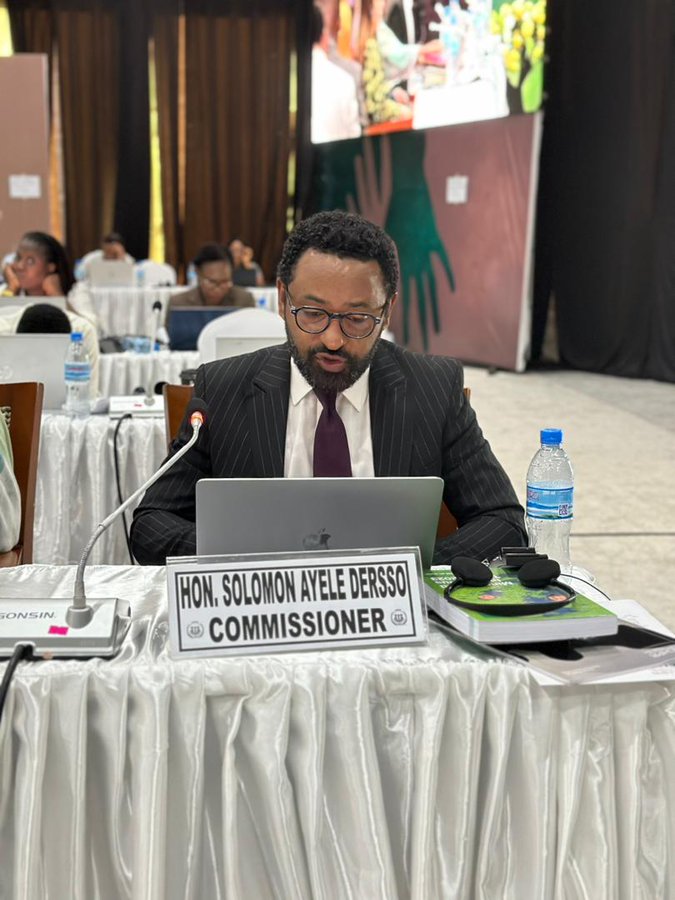At the 77th Ordinary Session of the African Commission, ISHR reiterated the need to adopt an environmental rights instrument in Africa and its call to the Working Group on Extractive Industries, Environment and Human Rights Violations in Africa (WGEI) to initiate and develop such an instrument. In his report, the Chairperson of the Working Group, Commissioner Solomon Ayele Dersso, noted numerous activities he conducted to raise awareness of the African Commission’s State Reporting Guidelines and Principles on Articles 21 And 24 of the African Charter relating to Extractive Industries, Human Rights and the Environment. The activities include presentations at the Southern Africa Binding Treaty Indaba on 27-28 June 2023 held in Johannesburg, the International Expert Meeting on Human Rights Approaches to Sustainable Social Services held in Geneva on 3-4 October 2023, the convening of a panel discussion on the Use of State Reporting Guidelines and Principles on Articles 21 and 24 of the African Charter on Human and Peoples’ Rights’ as well as the facilitation of the expert validation meeting on the study of Climate Change and Human Rights at the 77th Ordinary Session of the African Commission.
Violations against environmental defenders
In its statement, ISHR depicted a bleak picture of the state of environmental human rights defenders (EHRDs) in Africa, including the killings and assassinations of EHRDs and the failure of States to hold the perpetrators to account. Indeed, in the Democratic Republic of Congo, Obedi Karafulu, a land rights defender, was shot dead in Bukombo, North Kivu, by unidentified gunmen. The victim defended the interests of 36,000 former workers of the Société internationale des commerces et des industries agricoles (SICIA) concession in Bishusha. In South Africa, Fikile Ntshangase, who vehemently opposed the extension of a coal mine was brutally murdered in her home, and the Abahlali baseMjondolo movement continues to face repression, with three of its members murdered in 2022 alone. In Kenya, the environmental activist who had been fighting illegal deforestation in the Kiambu forest, some 16 km from Nairobi, for several years was killed on 15 July 2021. None of the perpetrators has been held accountable.
Environmental rights instrument as a response
To strengthen the protection of environmental rights in Africa and those who defend these rights on a daily basis, the Environmental Rights Coalition, of which ISHR is a member, embarked on an advocacy campaign so that the African Commission could initiate the drafting and adoption of a legal instrument on environmental rights. This instrument will go a long way to ensure access to effective remedies for those affected, access to environmental information, strengthen the social responsibility of extractive industries and, above all, protect environmental rights defenders.




